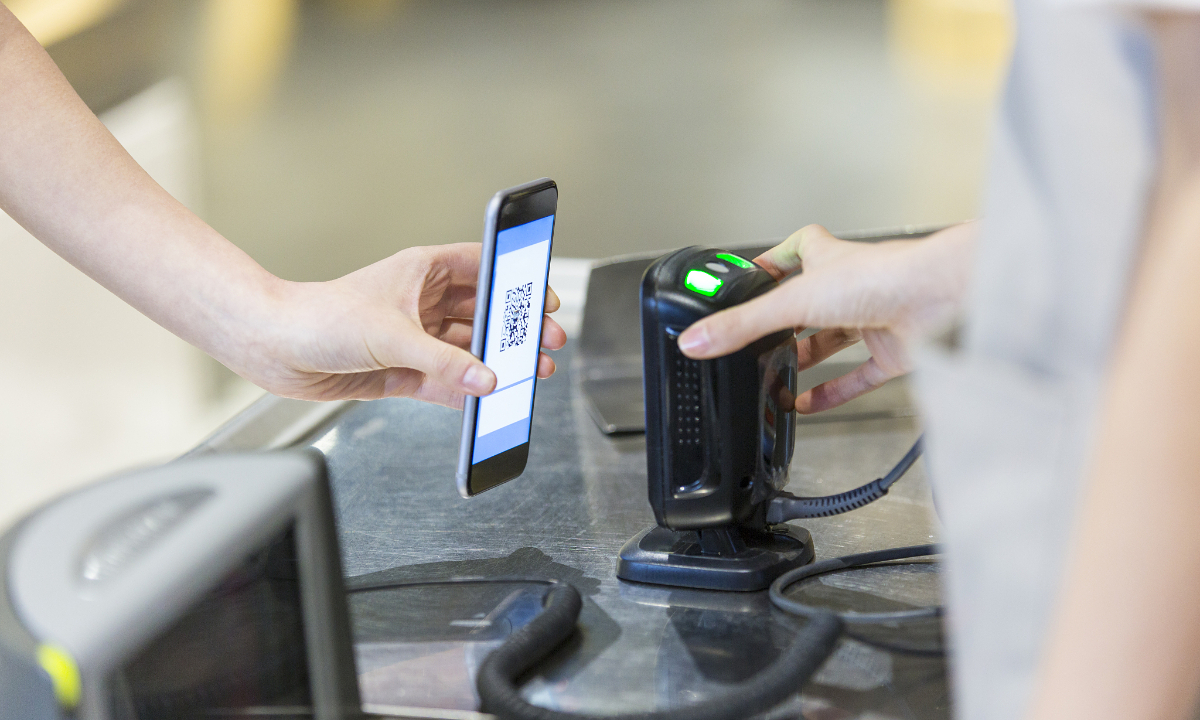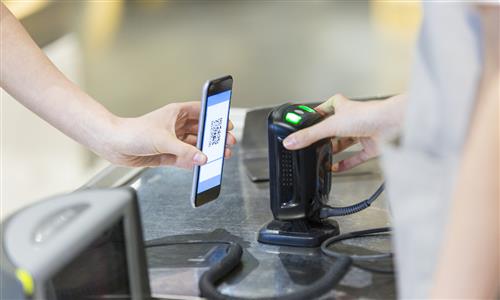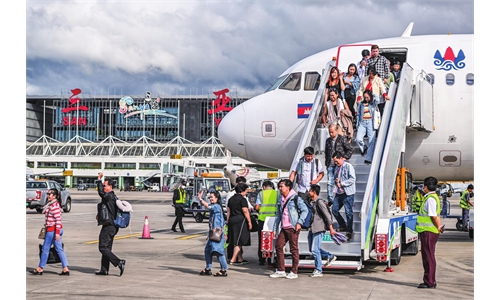
Mobile payment Photo:VCG
Major Chinese cities like Beijing and Shanghai have stepped up efforts to improve means of payment for foreign travelers, a move to promote inbound tourism and high-level opening-up.
Shanghai, frequently picked up by overseas visitors as their first stop to China for business, study or sightseeing, will optimize payment service linked with bank cards, promote the use of cash and facilitate mobile payment to meet the diverse preferences of foreigners, Hua Yuan, vice mayor of Shanghai, told a press conference on Thursday.
"We have improved the cross-border payment functions of UnionPay, Alipay and WeChat Pay to facilitate mobile payments on the side of Chinese merchants. UnionPay can support users of more than 180 overseas wallets to make payments, and Alipay can support e-wallets from 10 countries and regions to make payments in China, Hua said.
In terms of bank cards, the city has newly opened more than 37,000 foreign card point-of-sale (POS) terminals, covering sites of commerce, culture and tourism, and airports.
The total number of foreign bank card POS swipes, and the per customer transaction value in Shanghai are both leading other cities in the Chinese mainland, said Hua.
Shanghai also has a large number of yuan cash withdrawal or exchange outlets, including more than 8,000 automatic teller machines (ATMs), over 3,500 Chinese bank outlets, and 183 foreign currency exchange outlets.
Hua said that Shanghai will promote the full coverage of foreign card withdrawals of yuan cash from ATMs stationed in the city.
On Tuesday, the Beijing municipal government released an action plan to optimize its payment services.
The capital city will continue to improve the user-friendly level and convenience of payments such as mobile payments, bank cards and cash. As of the end of December, the city will have basically solved the payment difficulties of elderly people, foreigners coming to Beijing and other groups.
"In Shanghai, everything can be paid for by using a QR code - this is very different from my home. It's super convenient," an Australian tourist who requested anonymity told the Global Times on Thursday.
"It makes Shanghai feel much more international and connected. It also helps in keeping track of how much you spend - which is great for a shopaholic like me," the tourist said.
Alejandra Clemente Romagnoli, a tourist from Mexico who has visited Shanghai, told the Global Times that she usually uses Alipay or WeChat Pay, and the accounts are associated with her Chinese bank cards.
"It is very easy to use mobile payments. Just take your cellphone and go out. In Mexico, I had to carry cash and a bank card," she said.
The two cities' moves came after China released on March 7 a guideline to better meet the payment needs of foreigners, which experts said is conducive to boosting domestic consumption while demonstrating the country's commitment to high-level opening-up.
"By installing new foreign card POS machines and promoting the facilitation of payments, these cities have provided a more convenient and efficient payment environment for foreign tourists," Wang Peng, an associate research fellow at the Beijing Academy of Social Sciences, told the Global Times on Thursday.
"These measures have also promoted consumption and expanded domestic demand, further boosting China's economic growth," Wang said.
Wang added that a convenient and efficient payment environment can reduce the transaction costs of enterprises and improve the efficiency of capital utilization, enhancing competitiveness.
By promoting payment facilitation, China can enhance its attractiveness in the international investment market and attract more foreign investment, he said.



